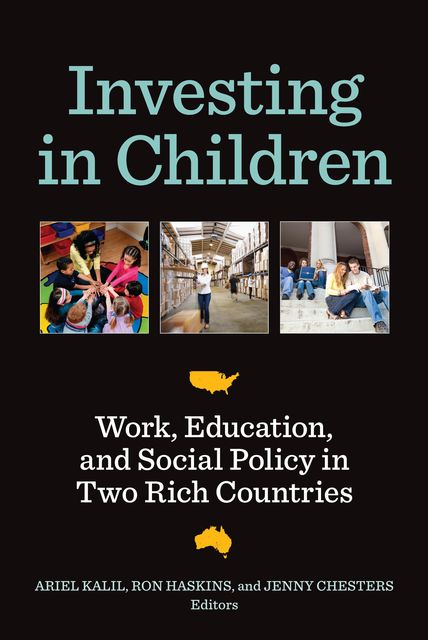Investing in Children: Work, Education, and Social Policy in Two Rich Countries presents new research by leading scholars in Australia and the United States on economic factors that influence children's development and the respective social policies that the two nations have designed to boost human capital development.
The volume is organized around three major issues: parental employment, early childhood education and child care, and postsecondary education. All three issues are intimately linked with human capital development. Since both Australia and the United States have created extensive policies to address these three issues, there is potential for each to learn from the other's experiences and policies. This volume helps fulfill that potential.
The authors demonstrate that in both nations, the effects of low family income and income inequality emerge early in life and persist. However, policies that increase parental employment, augment family income, and promote quality preschool and postsecondary education can boost children's development and at least partially offset the negative developmental effects of family economic disadvantage.

